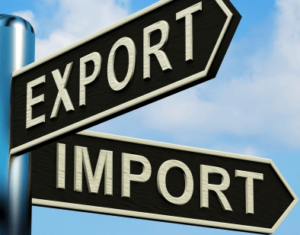Negotiators agree to liberalise tariff lines towards achieving Continental Free Trade Area in Africa
 Despite the exponential increase in the volume as well as the value of goods and services traded across borders, Africa’s share in global trade continues to decline.
Despite the exponential increase in the volume as well as the value of goods and services traded across borders, Africa’s share in global trade continues to decline.
Global trade has reportedly increased from $13 trillion in 2000 to an estimated $30 trillion in 2010, but Africa’s share in world trade has been in decline since 1980 and currently stands at about three per cent.
That and other unfavourable trade systems informed the decision for a Continental Free Trade Area to facilitate intra-Africa trade – which is the lowest, compared to other continents.
The deadline for attaining the Continental Free Trade Area (CFTA) in Africa is by the end of this year, 2017, and negotiators appear to be working against time to achieve some of the timelines.
At the recently held 5th CFTA Negotiation Forum, the negotiators agreed in general to liberalise between 85 and 95 per cent of their tariff lines over a five to ten-year period, while also providing for flexibilities through exclusions and lists of sensitive products to accommodate concerns regarding the potential challenges related to liberalisation.
The Forum was organized to discuss potential strategies for fast-tracking the establishment of the CFTA.
A report by the International Centre for Trade and Sustainable Development indicates that negotiators were, however, unable to finalise the draft modalities for negotiations on trade in goods and trade in services as originally planned.
The chief technical advisor on the CFTA, Prudence Sebahizi, speaking on behalf of Treasure Maphanga, the African Union Commission’s director of trade and industry, at the 8th meeting of the CTF, “deplored the fact that the works on modalities for both trade tariff liberalization and trade in services negotiations remain so far uncompleted,” according to a press release published by the AU and cited by the report.
“A bottom-up approach was agreed for further technical work on the draft text through technical working groups which will report to the next meeting of the Negotiating Forum also in Addis Ababa in June,” the report noted citing a UNECA press release issued after the 5th round of talks.
According to the report, if successfully negotiated and implemented, the CFTA will constitute the world’s largest free trade area in terms of number of participants, encompassing 54 African countries which account for a combined GDP of more than $3.4 trillion and with a total population of more than one billion people.
“Remember that we have made promises, during our last meeting in Nairobi, that conclusion of the CFTA by end of 2017 is technically possible. Indeed, it is possible! We therefore have a duty to do all that we can do and place the ball in the court of the Member States,” said Prudence Sebahizi to African experts at the opening of the 8th meeting of the Continental Task Force (CTF).
By Emmanuel K. Dogbevi
Copyright ©2017 by Creative Imaginations Publicity
All rights reserved. This news item or any portion thereof may not be reproduced or used in any manner whatsoever without the express written permission of the publisher except for the use of brief quotations in reviews.
